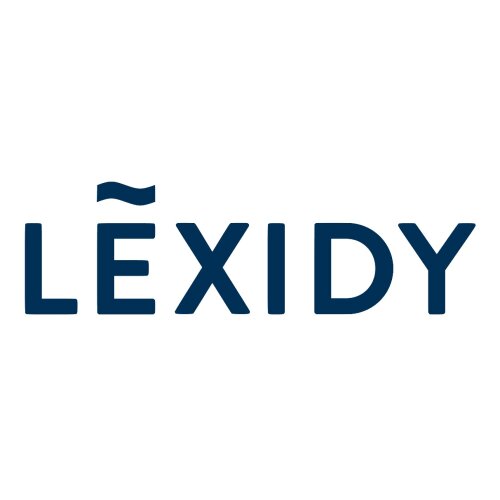Best Corporate Governance Lawyers in Paris
Share your needs with us, get contacted by law firms.
Free. Takes 2 min.
List of the best lawyers in Paris, France
About Corporate Governance Law in Paris, France
Corporate governance in Paris, France refers to the system of rules, practices, and processes by which companies are directed, managed, and controlled. It encompasses the relationships among a company’s management, board of directors, shareholders, and other stakeholders. French corporate governance is shaped by both national legislation and European directives, ensuring transparency, accountability, and fairness in a company’s operations. Paris, as France’s financial hub, is home to many major corporations and international subsidiaries, making corporate governance a critical element for business practice and compliance.
Why You May Need a Lawyer
Seeking legal advice in corporate governance is essential for various reasons. Whether you are establishing a company, restructuring, navigating mergers or acquisitions, or ensuring regulatory compliance, a corporate lawyer can provide essential guidance. Common situations where individuals and businesses may require legal help in corporate governance include:
- Setting up company statutes and internal rules
- Drafting and reviewing shareholder agreements
- Ensuring board practices comply with French law
- Managing conflicts of interest and disputes among management or shareholders
- Handling disclosure and transparency obligations
- Implementing corporate social responsibility requirements
- Adapting to regulatory changes and updates in French and European law
- Supporting foreign investors with local compliance
Local Laws Overview
Corporate governance in Paris is governed by key local and national laws, including the French Commercial Code (Code de commerce), which outlines the functions and responsibilities of company management and boards. There are different rules for various company types, such as Societe Anonyme (SA), Societe par Actions Simplifiee (SAS), and Societe a Responsabilite Limitee (SARL). The Autorite des Marches Financiers (AMF) regulates listed companies and sets standards for financial disclosures and shareholder protection. Recent French laws for corporate duty of vigilance and gender balance on boards also have significant effects on governance practices for larger firms in Paris.
Frequently Asked Questions
What is corporate governance?
Corporate governance refers to the framework of rules and practices that guide how a corporation is managed and controlled, including the relationships among its stakeholders.
Who is responsible for corporate governance in a French company?
The board of directors or the management board, depending on the company type, holds the primary responsibility for corporate governance, often under the oversight of shareholders at general meetings.
Are there specific corporate governance codes in France?
Yes, listed companies often follow the AFEP-MEDEF Code or the Middlenext Code for good governance practices, although these are not legally binding but are strongly recommended.
Is gender diversity on boards required in France?
Yes, French law sets minimum quotas for gender diversity on the boards of large companies, mandating at least 40 percent representation for each gender in certain cases.
What are the main statutory forms for companies in France?
The most common company forms are Societe Anonyme (SA), Societe par Actions Simplifiee (SAS), and Societe a Responsabilite Limitee (SARL), each with distinct governance rules.
What disclosures are required from listed companies in Paris?
Listed companies must comply with transparency and disclosure obligations regarding financial performance, risks, management compensation, and other material information according to AMF rules.
How are conflicts of interest managed?
Conflicts of interest must be disclosed, and interested parties are often excluded from related decisions. Many companies set internal codes of conduct and procedures to mitigate these situations.
What happens if corporate governance laws are breached in France?
Breaches can lead to administrative sanctions, fines, or legal proceedings. For serious cases, criminal liability can also be triggered for company officers.
Do foreign companies need to follow French corporate governance laws?
Foreign companies with subsidiaries or branches in France must comply with applicable French corporate governance laws for those local entities.
How often must boards meet?
The frequency of board meetings varies according to company by-laws and statutory requirements, but regular meetings and formal record-keeping are essential for compliance and effective oversight.
Additional Resources
If you are seeking more information or support in corporate governance in Paris, consider reaching out to the following organizations:
- Autorite des Marches Financiers (AMF): The main financial regulatory body in France
- Paris Commercial Court (Tribunal de commerce de Paris): Handles disputes related to company law and governance
- French Bar Association (Ordre des avocats de Paris): Directory of lawyers specializing in corporate law
- AFEP-MEDEF: Provides the leading French corporate governance code
- Middlenext: Offers governance resources for medium-sized companies
Next Steps
If you need legal assistance in corporate governance in Paris, begin by documenting your specific concerns and gathering relevant company documents. Consult with a local lawyer who specializes in corporate law to assess your situation and receive tailored guidance. Make sure to verify the lawyer’s expertise in French corporate governance. For more complex matters such as cross-border operations or regulatory compliance, choose a firm with experience in both French and international corporate law. Proactive consultation helps prevent regulatory issues and supports the long-term success of your business in Paris.
Lawzana helps you find the best lawyers and law firms in Paris through a curated and pre-screened list of qualified legal professionals. Our platform offers rankings and detailed profiles of attorneys and law firms, allowing you to compare based on practice areas, including Corporate Governance, experience, and client feedback.
Each profile includes a description of the firm's areas of practice, client reviews, team members and partners, year of establishment, spoken languages, office locations, contact information, social media presence, and any published articles or resources. Most firms on our platform speak English and are experienced in both local and international legal matters.
Get a quote from top-rated law firms in Paris, France — quickly, securely, and without unnecessary hassle.
Disclaimer:
The information provided on this page is for general informational purposes only and does not constitute legal advice. While we strive to ensure the accuracy and relevance of the content, legal information may change over time, and interpretations of the law can vary. You should always consult with a qualified legal professional for advice specific to your situation.
We disclaim all liability for actions taken or not taken based on the content of this page. If you believe any information is incorrect or outdated, please contact us, and we will review and update it where appropriate.

















